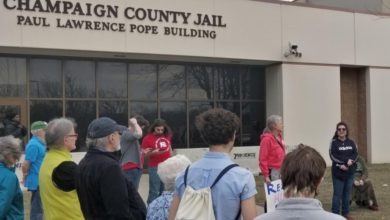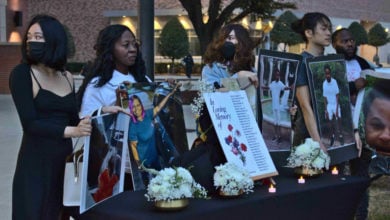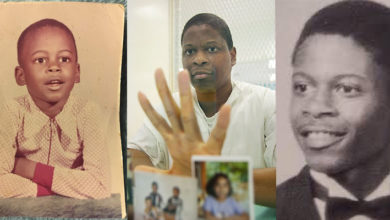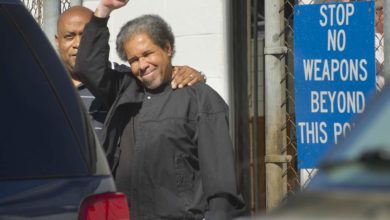On Jan. 14, in honor of Dr. Martin Luther King Jr., approximately 100 workers, students and activists marched on Washington, D.C., to demand “Jobs Not Jails” and an end to mass incarceration. In the United States, one out of every 100 people is behind bars. Among African American males between 20 and 34 years of age, one in nine is incarcerated.
“We need skills to survive. We need jobs,” said D.C. resident Stewart Anderson. “I hope this movement continues so we can end this senseless system of mass incarceration.”
The demonstration began with a rally at 11 a.m. at the intersection of Seventh and O Streets in Northwest D.C., featuring speakers from many of the organizations that make up the Jobs Not Jails coalition. Many passersby on foot enthusiastically joined after learning what the action was about as cars and trucks gave honks of solidarity in response to the “Jobs Not Jails” banner.
“It’s not a question of if we’ll end this system of mass incarceration,” said Eugene Puryear of the ANSWER Coalition (Act Now to Stop War and End Racism). “It’s a question of when we’ll end this system of mass incarceration.”
Many local D.C. organizations united to create Jobs Not Jails, including the United Black Fund, Cease Fire … Don’t Smoke the Brothers, Returning Citizens United, Students Against Mass Incarceration, D.C. Troy Davis, the Campaign to End the Death Penalty, the Occupy D.C. Criminal Justice Committee, Stop the War Machine, the New Jim Crow Working Group, the Movement for Love and Unity, the Party for Socialism and Liberation and the ANSWER Coalition.
Following the rally, founding member of the Jobs Not Jails coalition, Yango Sawyer, led the demonstrators as they stopped traffic for blocks, chanting “Jobs Not Jails” while marching through the busy streets of Chinatown to the Office of the Attorney General of the District of Columbia, located across the street from the headquarters of the D.C. Metropolitan Police Department and numerous local and federal courthouses.
For district residents, the horrors of the prison system are uniquely intense. Since the district is not technically a state, prison sentencing is handled on the federal level, resulting in prison terms routinely being served hundreds of miles away from family, friends and other critical social support networks.
When the march concluded, a closing rally took place outside the court house. Sam Washington, who served 30 years in the prison system, said:
“We need a wrap-around system, brothers and sisters, a process to transition into. The communities got to wrap around you.”
Puryear challenged the routine claims from all levels of government that there is no money available to fund the critically necessary jobs programs that could serve to keep people out of prison in the first place.
“GE [General Electric] has $332 billion in bank accounts. Imagine what would happen if they took just $2 billion and dropped it on this situation. And it’s not about getting a handout, it’s about taking back what’s yours.”
Speakers condemned the “War on Drugs” as a pretext for mass incarceration and the expansion of the prison-industrial complex, which generates billions of dollars in profits for corporations that run and invest in private prisons. For example, Wells Fargo is one of the largest investors in Geo Group, Inc., which is the second largest private company in the world contracted by state and federal agencies
During the rally, Liberation News interviewed community organizer Michael Milanez, who was born and raised in Washington, D.C. He recounted the instances of racist police brutality that he had been subjected to for being a young African American man in D.C.: “I would be playing at the basketball court and police officers would get us and line us up, spread us out. I’m talking about 15 of us or so. … We had our hands up on the wall. … They would hit you in the ribs if you hollered. They would hit you in the ribs with their fists or even batons. They used [telescoping batons] to hit a couple of guys on the head for mouthing off. We weren’t doing anything. Just a group of guys together.”
The Jobs Not Jails coalition joined up again on Jan. 16 for the Martin Luther King Jr. Parade in Washington, D.C. It was received with overwhelming support as it made its way through some of the most oppressed neighborhoods in the city. The next demonstration for the Jobs Not Jails campaign is scheduled for April 4.






